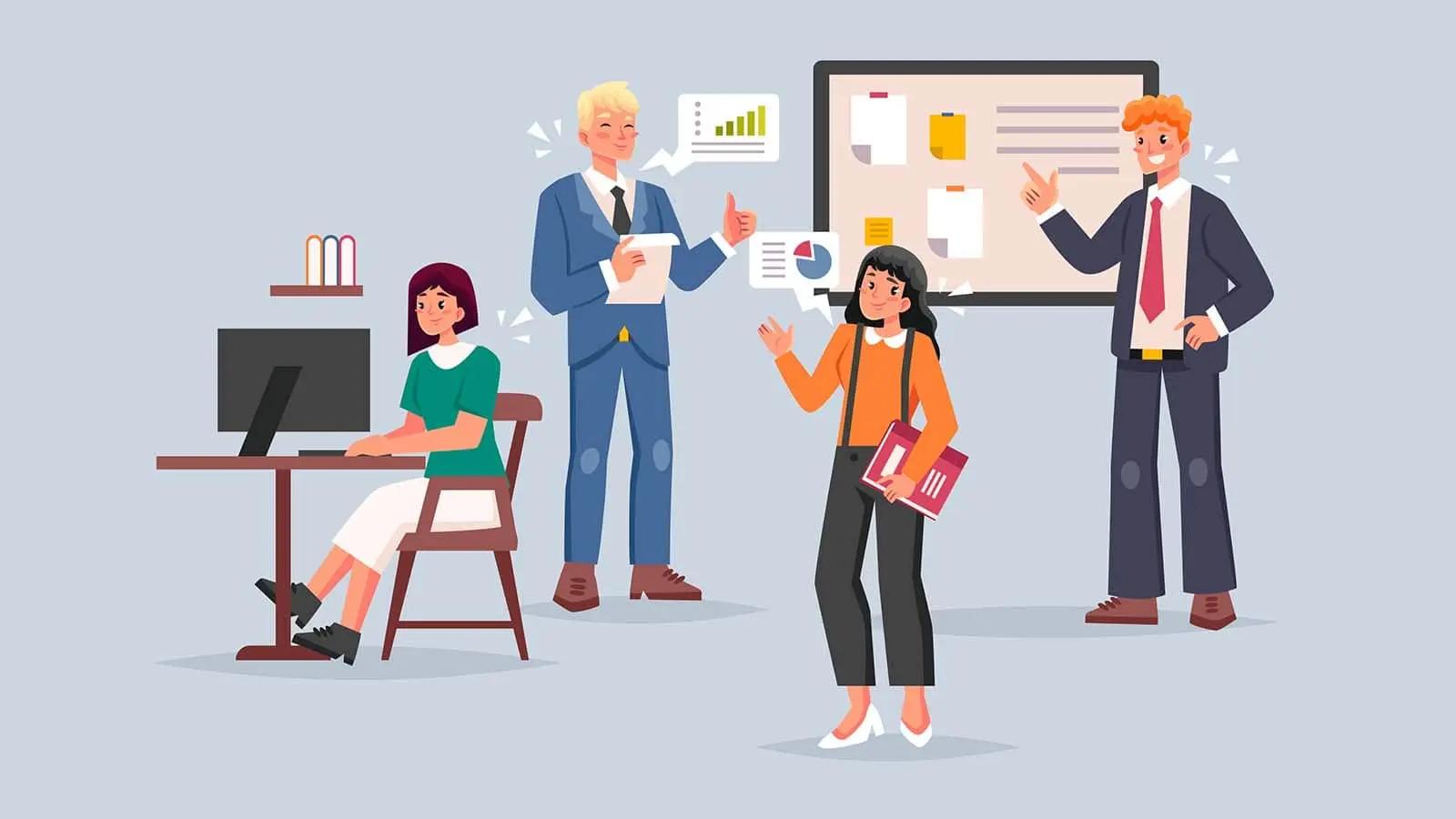Learning Retention in Corporate Training
Rohit Kumar
18 Mar, 2024

In the fast-paced corporate training world, retaining new knowledge is as crucial as acquiring it. Companies invest heavily in training programs to equip employees with the skills vital to navigate the complexities of today's business environment. However, the effectiveness of these programs hinges on the volume of information delivered rather than on the amount of knowledge retained and applied over time. That brings us to the heart of the matter: Learning retention, a critical yet often overlooked component of corporate training that determines the long-term success of educational initiatives.
Enter the concept of the forgetting curve, a phenomenon first identified by the German psychologist Hermann Ebbinghaus in the late 19th century. Ebbinghaus's research revealed a disturbing truth: without active efforts to retain new information, the human brain begins to lose its grasp on learned knowledge almost immediately, with a significant drop in memory retention within just a few days. For corporate training programs, this means that without strategies specifically designed to combat the natural tendency to forget, most training efforts could be in vain, akin to pouring water into a sieve.
The implications of the forgetting curve for corporate training are profound. It challenges learning and development leaders to rethink their approach to training, shifting the focus from mere information delivery to implementing strategies that enhance and sustain knowledge retention. The goal is to transform training from a fleeting encounter with new information into a lasting change in knowledge and behavior.
The Challenge of Learning Retention
The human brain, remarkable as it is, has a built-in forgetfulness feature. It's a natural process that Hermann Ebbinghaus, a German psychologist, meticulously charted over a century ago. His discovery, known as the Ebbinghaus Forgetting Curve, paints a clear picture: without deliberate efforts to retain new information, our brains lose hold of it almost as quickly as we learn it. This curve shows a steep decline in memory retention, starting almost immediately after learning. Within days, if new information isn't effectively reinforced, up to 70% of it can evaporate from our minds.
This natural inclination towards forgetfulness poses a significant challenge in corporate training environments. Here, the stakes are high. Companies invest considerable resources in training programs to arm their workforce with the latest skills and knowledge to stay competitive. However, the success of these investments hinges not just on the delivery of information but on the retention and application of this knowledge over time.
The challenge, then, is to teach and ensure that learning sticks. In the corporate world, where change is the only constant, the ability to retain and apply knowledge is a critical determinant of success. This reality underscores the need for effective strategies beyond traditional teaching methods. These strategies must address the core issue of forgetfulness, turning the tide against the natural decline of memory retention. The goal is to transform fleeting encounters with new information into lasting, actionable knowledge that drives individual and organizational success.
Strategies for Boosting Retention
A multifaceted approach is essential in the quest to conquer the challenge of learning retention in corporate environments. Here are key strategies that have proven effective in enhancing the retention of known information, ensuring that training investments yield lasting benefits.
-
Engaging Content Creation: Creating interactive and engaging content stands at the forefront of successful learning retention strategies. By incorporating hands-on activities, virtual simulations, and interactive quizzes into training programs, learners are more likely to absorb and retain information. This approach transforms passive learning into an active experience, making learning enjoyable and memorable.
-
Blended Learning Approaches: Blended learning approaches merge digital and in-person training methods, catering to the diverse preferences of learners. This strategy acknowledges that no single learning modality suits everyone. Organizations can significantly improve retention rates by offering a mix of online modules, classroom sessions, and virtual workshops, accommodating different learning styles and schedules.
-
Spaced Repetition and Continuous Learning: Spaced repetition leverages revisiting learned material at intervals over time, reinforcing knowledge and aiding in its transfer to long-term memory. Coupled with continuous learning opportunities—such as follow-up sessions, eLearning courses, and refresher quizzes—this approach ensures that learning is not a one-time event but a continuous journey.
-
Leveraging Technology for Learning Retention: Technology plays a pivotal role in modern learning retention strategies. eLearning platforms, digital tools, and learning management systems (LMS) offer accessible, flexible, and personalized learning experiences. Microlearning modules and mobile learning apps enable learners to engage with content in short, focused bursts, fitting learning into their busy schedules.
-
Real-world Application and Practice: Applying concepts to real-world scenarios bridges the gap between theory and practice. Incorporating case studies, simulations, and role-playing exercises into training programs allows learners to experiment with and apply new knowledge in safe, controlled environments, enhancing their understanding and retention.
-
Social Learning and Collaboration: Learning is inherently social. Organizations can foster a collaborative learning culture by encouraging peer discussions, group projects, and using social media platforms for learning. That enhances retention through shared knowledge and experiences, building a supportive learning community.
-
Feedback and Assessment: Regular assessments and feedback mechanisms are crucial for monitoring progress and reinforcing learning. Through quizzes, simulations, and performance evaluations, learners receive constructive feedback, highlighting strengths and identifying areas for improvement, which, in turn, solidifies their understanding and retention of the material.
-
Personalization and Learner Motivation: Personalizing learning experiences to align with individual needs, interests, and career goals significantly boosts learner engagement and motivation. Tailored learning paths, choice of learning activities, and clear connections between training content and professional development opportunities encourage learners to take an active interest in their learning, thereby improving retention.
By integrating these strategies into corporate training programs, organizations can overcome the inherent challenges of learning retention, ensuring their workforce acquires, retains, and applies the invaluable skills and knowledge required to thrive in today's competitive business landscape.
Adopting a multifaceted approach to learning retention is crucial for the success of corporate training programs. The strategies outlined here, from engaging content creation to leveraging technology and fostering a continuous learning culture, are essential for ensuring that training imparts knowledge and is retained and applied.
At Core Competency, we understand the importance of effective learning retention. With over 20 years of experience solving complex HR and talent management challenges, we offer innovative solutions to supercharge your L&D efforts. Our suite of products, including our Learning Management System, Virtual Classroom, and Competency Management System, alongside services like custom software and e-learning development, are designed to meet your company's specific needs.
We invite you to explore how Core Competency can enhance your learning and development strategies. Visit us at corecompetency.net to learn more about our client-first approach and how our cutting-edge technologies can help fuel your organization's success. Together, we can create learning experiences that are memorable and impactful.
Assessment of Behavioural Core Competencies
For example, students struggling with a particular concept could be provided with additional resources or assigned to a different module via the e-learning and learning management system.
Read Blog




